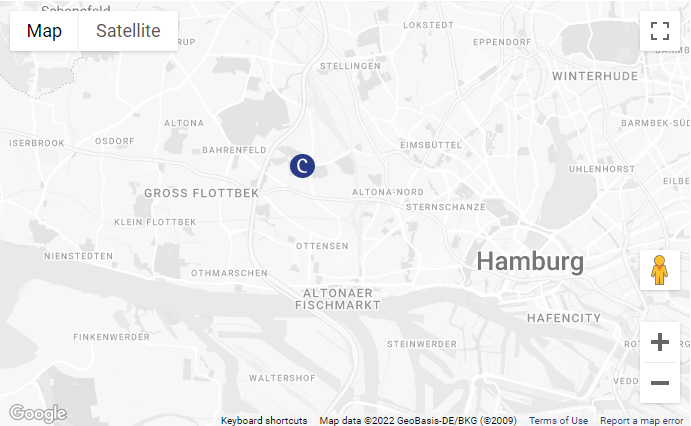Supply Chain Continuity Management
Supply chain disruptions are something you can stay one step ahead of and protect yourself from downtime. We help you position your business to face supply chain disruptions with peace of mind.
Supply chains face several risks at once. These range from cyber attacks and natural disasters to disruptions caused by pandemics, wars, congestion in ports, transport restrictions, machine breakdowns, supplier insolvencies … and the list goes on.
The best way to counter these risks and dangers is to strengthen the resilience of your own company. Once you have achieved this resilience, you are always one step ahead of a supply chain disruption. With our expertise in Supply Chain Continuity Management (SCCM), we can support you in this process, tailored to your company, and work with you to set up an efficient and effective SCCM system.
Supply Chain Continuity Management strengthens resilience
SCCM is the application of BCM in logistics and is aimed at all companies that procure or distribute products or services. SCCM builds on the principles of BCM and aims to systematically identify the potential impact of disruptions within the supply chain and implement effective countermeasures before they occur – in order to have a "Plan B". SCCM increases the company's resilience, improves its image and ensures its continued existence in the most effective and efficient way possible. Our approach to supply chain continuity management is based on our many years of project experience in logistics, industry best practice models, namely GPG (BCI), and the current international standard (ISO 22318:2015).
Our consulting offer for SCCM
Executives use SCCM to lead their organisation to success. We support you in setting up an SCCM system and in further developing an existing BCM system. In addition to the consulting services for the implementation of a BCM system, we offer the following for the SCCM system:-
Creation of a supplier questionnaire to query and assess emergency-specific aspects before concluding a contract with a potential supplier or service provider
-
Development of emergency-relevant contents for contracts with suppliers and service providers
-
Developing solutions to reduce risks within the own supply chain and the organisation
-
Building a model for monitoring and assessing the maturity of one's own system and the possibility to continuously improve the system
SCCM further development and implementation
For the further development or implementation of your SCCM, you will be supported by our consulting team. Based on our process model, we adapt the consulting service individually according to your requirements and the need.Coaching
Our experts coach you during the project so that you can apply the knowledge independently in your company. Our aim is for you to learn the necessary knowledge during the project and put it directly into practice. We see ourselves as a sparring partner who prepares you for the next worst-case scenario.What is Supply Chain Continuity Management?
Business Continuity Management serves as the basis for Supply Chain Continuity Management (SCCM). Logistics is a system with short lead times, high delivery service, in the best case low inventories and low costs. The transport, storage, provision, procurement and distribution of goods should be continuously ensured. Business continuity management (BCM) is a process to ensure this continuously.Supply Chain Continuity Management (SCCM) goes one step further. Here, for example, the focus is on the analysis of the criticality of suppliers and service providers, the development of individual solutions and their contractual design. SCCM strengthens the company's resilience with the help of an effective response and thus prevents business interruptions.
What is the objective of Supply Chain Continuity Management?
-
Safeguarding the stability of the supply chain
-
Minimising risks that could lead to critical failures
-
Increasing the company's resilience to external influences
-
Preparation of effective countermeasures in the event of delivery defaults
-
Development of solutions to reduce risks within the own supply chains
-
Building a process for continuous improvement of the SCCM system
Benefits of supply chain continuity management for companies
-
Identify current and future supply chain threats and provide effective response processes
-
Strengthening the company's resilience
-
Avoiding or minimising the impact of supply chain disruptions
-
Maintaining essential tasks and processes in a worst-case scenario
-
Fulfilment of legal, regulatory and customer requirements (e.g. KRITIS)
-
Satisfying legal, regulatory and customer requirements
-
Minimising downtime and shortening restart times caused by supply chain interruptions
-
Provable resilience to customers
Costs
The costs of our support vary greatly from project to project, so unfortunately we cannot provide any specific details at this point. However, we support small and medium-sized companies as well as large enterprises of almost any size. Contact us and we will find a price range that meets your needs and requirements. FAQ
What does SCCM mean? Supply Chain Continuity Management (SCCM) is a subfield of Business Continuity Management with a focus on supply chains. SCCM analyses the risks of supply chains and develops individual solutions as well as their contractual design in order to establish an effective emergency and crisis management.
Why is SCCM so important?
The time factor plays a major role in the failure of supply chains. The longer business processes fail due to supply chain interruptions, the higher the financial and/or reputational damage. For some companies, the time window until their existence is threatened can even be very small. An established SCCM reduces the likelihood of loss scenarios caused by supply chain failures, creates structures to manage critical failures and gives you the confidence to restart within a defined window of time.






